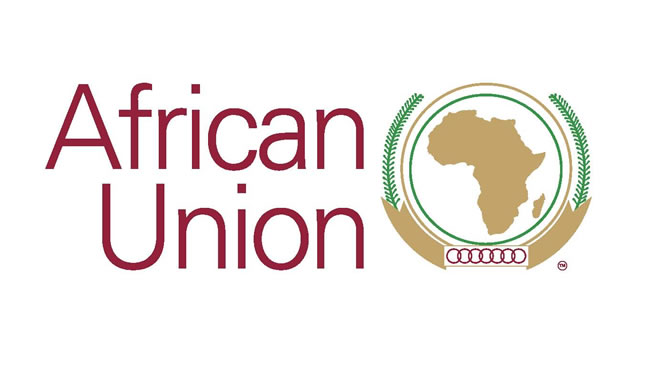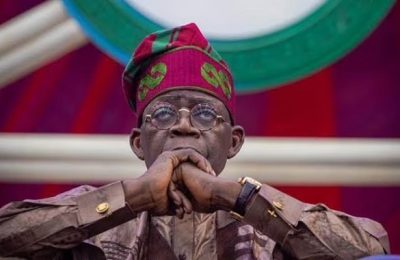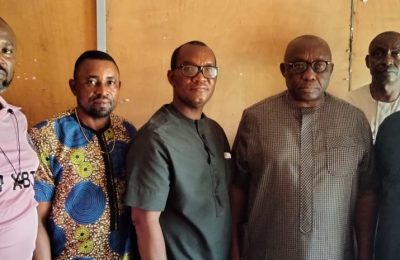African would have marked the sixtieth anniversary of the founding of the Organization of African Unity this last week, precisely on May 25, had it not been replaced with a successor organization, the African Union (AU).Formed at Addis Ababa on May 25, 1963 by 32 independent African countries to, among others, promote unity and solidarity among African states,defend their sovereignty, eradicate all forms of colonialism, and give them a collective voice on the global stage, the defunct OAU survived for four decadesuntil 2002.Although the fact of its replacement by another organization, i.e., the African Union, had been made known in the Sirte Declarationadopted by African leaders in the Libyan port city of Sirte in 1999, it was not formallylaunched until July 9, 2002 at the summit in held in Durban, South Africa. So, the AU has also marked twenty years, a feat which calls if not for cautious celebration but at the same time a critical overview.
Let me emphasize that both organizations, established for eventually arriving atfull continental political integration,have had their fair share of often merciless flagellation and unsparing condemnation by analysts and commentators who expected more than both can provide. One cannot totally blame those whose disappointment at the perceived poor performance or underperformance of the OAU boiled over into merciless criticism, and who still do not set much store by its successor organization, the AU. But sixty years after, we can do a more sober, dispassionate and less emotional appraisal ofthe past to chart the way forward.
I believe we should acknowledgetheimmutable fact that all inter-governmental organizations, by their nature, have their strengths and weaknesses, and perhaps the greatest weakness of such, in my considered opinion, is the type of membership. All international organizations without exception exist andfunctiononly at the mercy of the nation-states that voluntarily join them! Being sovereign in their own right, and recognizing no outside or superior authority over them, nation-states merely surrender smalland qualified portions of their decision-making powers to international organizations to act on their behalf, while retaining the essentialities oftheir sovereignty. The implication is that they only join international organizationsstrictly out of their own volition, stay in or leave such organizations,also at their own discretion. No law compels nation-states to join inter-governmental organizations.Even international law as we know it only prevails on the willingness and readiness of states to obey, hence the persistent poser students of international relations alwaysgrapple with, that is,“is international law really law”? The fact of states being highly jealous and protective of their sovereignty accounts for the paucity of supranational organizations in the global system.Supranational organizations are those whose decisions are binding on members without exception and which also have real powers and mechanisms to enforce their decisions.

A quick detour into history of Africa’s quest for integration is helpful here. After the Second World War and the impending transition of African colonies into independent states, vibrant and enlightened debates about the necessity and modalities for continental political and economic integrationhad commenced among the African intelligentsia.It took on greater urgency after Ghana’s independencein 1957 under the Pan-Africanist leadership of Kwame Nkrumah. Nkrumah’s vision for the continent had been shaped by his active involvement in the Pan-Africanist movement while a university student in the UK. That vision would later be eloquently articulated in his seminal book, appropriately titled Africa Must Unite, a treatise that powerfully laid out the imperatives of making Africa into a single continental nation-state much like the United States of America. This vision led him into organizing and hosting series of continental events, conferences and high-level meetings in Accra after Ghana’s independence on March 6, 1957, notably the first Conference of Independent African States, the first All-African Peoples Conference, the first Conference of African Trade Unions, all held in Accra in 1958.By these, Ghana had established itself the focal point for African unity.
Nkrumah’s relentless campaigns across the continent eventually resulted in the formation of the Organisation of African Unity, OAU, in Addis Ababa in May 1963 as a compromise from the divergent factional templates earlier proposed by different groupings of African states in Casablanca, Monrovia, and Lagos, most especiallythe radical positions of Kwame Nkrumah and the Casablanca Group for immediate merger of all African states, on the one hand, and on the other, the conservative and gradualist proponents such as Nigeria, which preferred to hold on to newly won sovereignty, while working towards eventual union at the appropriate time in the future. In reality, though, it would seem that the formation of the OAU signified the definitive triumph of the conservative ideologues over their more radical opponents.
Having existed and functioned for four decades, the OAU had exhausted its possibilities and was no longer able to respond appropriately to the unique and increasingly complex challenges of the newpost-Cold War order. With the collapse of the Soviet Union and the vanquishing of Communism as a political system,a new world order was inexorably shaping up, and with new global realities, new challenges and infinitely more complex emergencies which the OAU was decidedly ill-equipped for.

The establishment of the African Union in July 2002 as its successor thereforesignaled Africa’s sensitivity to these new global realities. Today, the African Union has all the 55 independent African states as its members. As the successor to the OAU it was designed, at least theoretically, with the objective of overcoming many of the perceived limitations and shortcomings of its predecessor.But it is a different matter entirely whether it can realistically overcomeall the debilities that hobbled its predecessor and to accomplish the noble objectives of its founders. Again, such would depend largely on the willingness and readiness of the member-states to empower and enable it to function well and fulfil those core objectives.

In truth, while transforming the OAUinto the African Union, African leaders undeniably made commendable efforts to design it in such a way to enable it overcome many of the severe limitations of the OAU, especially in the critical areas of conflict management, peace-making and peace-building, and the maintenance of security, not only the security of individual states alone but also that of the continent at large. Undoubtedly, African leaders and decision-makers have consciously moved away from reliance on the overworked cliché of the non-interference, which had legally and morally crippled the OAU from taking action against its erring members, to recognizing the need for collective action to maintain peace and security on the continent. The preamble to theConstitutive Act of the African Union notes that African leaders are now “conscious of the fact that the scourge of conflicts in Africa constitutes a major impediment to the socio-economic development of the continent.”
It is always tempting for some to want to conclude on a note of scepticism concerning the future viability and effectiveness of the African Union. Yes, itis far from being perfect, for perfection belongs in the realm of God alone. It has its unique characteristics and challenges and it is indubitably a product of both the historical eraand geopolitical circumstances in which it is operating. Sceptical commentators are wont to believe that the AU is merely an old wine in a new wineskin, a replication of the predecessor with a change of nomenclature only, the same old product repackaged to hoodwink the world. A number of them believe that it is merely a change in appearance rather than in substance, while many others hold the view that notwithstanding its nature and structure and the altered geopolitical environment, the new organization will be hobbled by the same fatal problems of its predecessor —– endemic political instability, poverty and economic underdevelopment, technological backwardness, pervasive authoritarianism andautocracy, corruption, state failure and state collapse, and such other intractable problems that Africa is still struggling with. We need not look far to validate this scepticism: the AU looked on helplessly as Darfur and Somalia became virtual mass graveyards. Even as I write this, Sudan is again violently unravelling, treading the same destructive path both DR Congo and Somalia had followed. Expectedly, some African states are implicated in the crisis, which have thus far made the AU unable to respond meaningfully.
All things considered, can we expect the AU to be able to overcome the inherent limitations of its predecessor? My answer is a qualified yes! It is undeniable that the new organization is different from the OAU in terms of its stated vision, mission and core objectives as well as its structure and institutions. And there are indications and hopeful signs that it may no longer be business as usual, judging by its boldness in promptly suspendingmember-states (Guinea, Mauritania, Madagascar, and Cote d’Ivoire from the AU at different times) for acts connected with unconstitutional seizure of power. Africa is truly coming of age, its leaders movingawayfrom the age of non-interference to the age of non-indifference. The African Union is not as hobbled and helpless as the OAU was, and it needs our support to achieve its objectives.
We must also acknowledge that the political landscape on the continent is changing rapidly as more African states are embracing democratic rule with its accompanying good governance. Additionally, the upsurge in mass movements that unseatedsome veritable dictators —- Abidine Ben Ali of Tunisia, Hosni Mubarak of Egypt and Omar al-Bashir of Sudan —- are clear warning signs to the rest of the continent that dictatorship is no longer as fashionable. But since Rome was not built in a day, the plea therefore is for Africans not to entertain unrealistically high expectations but persevere and patiently nudge the African Union on towards achieving the set objectives.
- Professor Fawole writes from Obafemi Awolowo University, Ile Ife.
READ ALSO FROM NIGERIAN TRIBUNE








